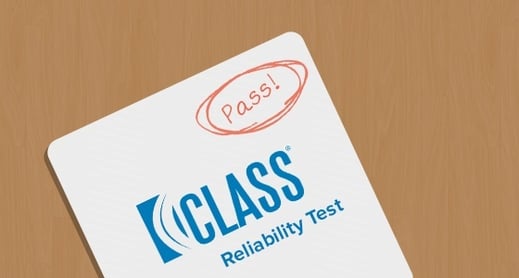
Brace yourself. I’m about to bring up a topic that strikes fear in the hearts of thousands of early childhood professionals—the CLASS reliability test! But as the list below demonstrates, it doesn’t have to be so scary.
Test your knowledge by answering fact or fiction to each statement below!
Fact or Fiction #1: There are three chances to pass the CLASS reliability test.
This is a fact! Have you ever heard the old saying, “If at first you don’t succeed, try, try again?” Our pass-rate data supports this idea. In fact, a whopping 92% of pre-K test-takers that persevere through the testing process pass the test to become CLASS Certified Observers!
Fact or Fiction #2: The vast majority of people pass on the first try.
Fiction. Our stats show that only slightly more than half, or 55%, of pre-K CLASS reliability test-takers pass the test right out of the gate. This means that for some people, the training was enough. But for others, the first test is more than a test—it becomes a crucial learning experience in your testing journey. I discussed this with a CLASS Affiliate Trainer recently, who reflected, “It’s not a bad thing to fail. Sometimes you have to fail before you can really get it.”
Fact or Fiction #3: There is nothing you can do to improve your chances of passing.
If you’ve read up to this point, you may have already guessed that this one is complete fiction. There is so much you can do to improve your chances of passing, starting with contacting your trainer or Teachstone’s reliability support team; they can answer your tricky coding questions or even review your score report with you. If that's not enough, there are practice videos, coding tip sheets, detailed score reports (when you fail), and other resources available in your myCLASS account to aid your test preparation.
How did you do? Let us know in the comments whether you knew fact from fiction or if any of these facts surprised you!

